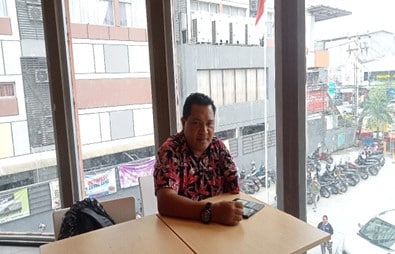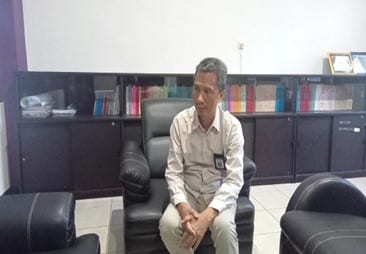Jayapura, Jubi – Roby Nyong, Chair of the Indonesian Disability Persons Association (PPDI) in Papua Province, raised concerns about the persistent challenges faced by people with disabilities in securing formal sector employment.
“Truthfully, individuals with various disabilities still struggle to find jobs. There might be one or two civil servants among us, as can be seen in the Papua‘s Legislative Council Office. But others have no representation,” said Roby on Tuesday, December 19, 2023.
PPDI Papua has recorded approximately 700 people with disabilities in Jayapura City, with a scant number engaged in formal sector employment. Only two individuals with disabilities are known to be entrepreneurs in Jayapura. Most of the others rely on familial support, occasional government aid such as basic provisions, and direct donations.
Roby emphasized that Law No. 8/2016 concerning Persons with Disabilities guarantees their right to employment. However, he highlighted the inadequacy of regulations in Papua that are supposed to favor people with disabilities.
“Take, for example, the recent recruitment of K2 contract workers into Civil Servants. Not a single person with disabilities was included, neither in the Provincial nor City governments. It seems our Regional Personnel Agency does not consider or create opportunities as mandated by the law,” Roby commented.
He noted that many individuals with disabilities in Jayapura possess degrees in engineering, law, economics, as well as high school diplomas or vocational training certificates. Despite qualifications, they struggle to secure jobs due to biases based on their physical appearance, despite their capacity and knowledge.
“In places like Jakarta, major retail chains employ deaf and speech-impaired individuals, yet in Papua, such affirmative action is severely lacking,” Roby remarked.
According to Roby, local government policies focusing primarily on providing assistance overlook the crucial need for broader job access for people with disabilities.
“In Papua, our attention leans heavily on social issues, resulting in a focus on aid distribution. However, what is crucial is ensuring opportunities for individuals, enabling them to achieve independence and prosperity,” Roby concluded. (*)











